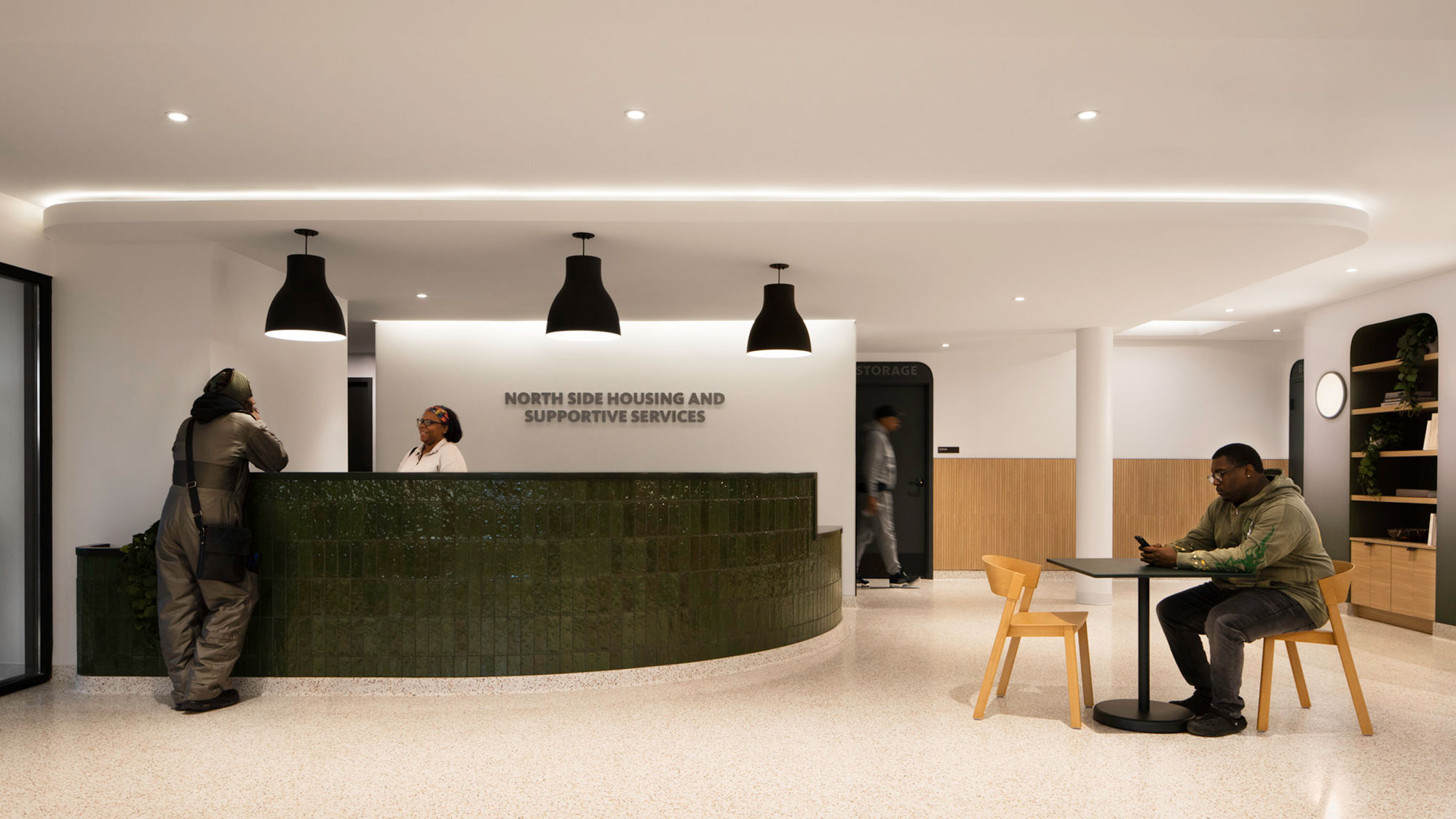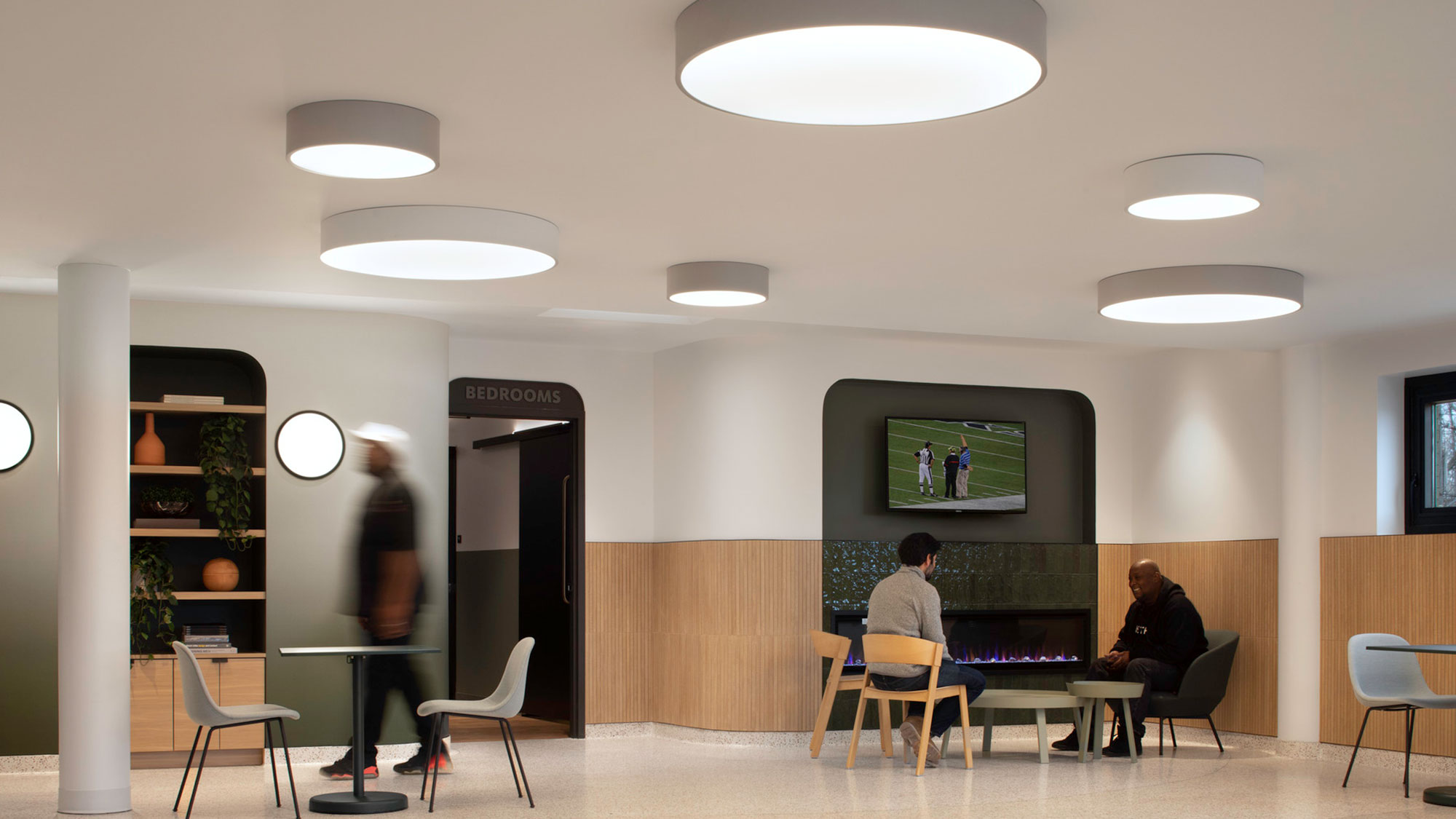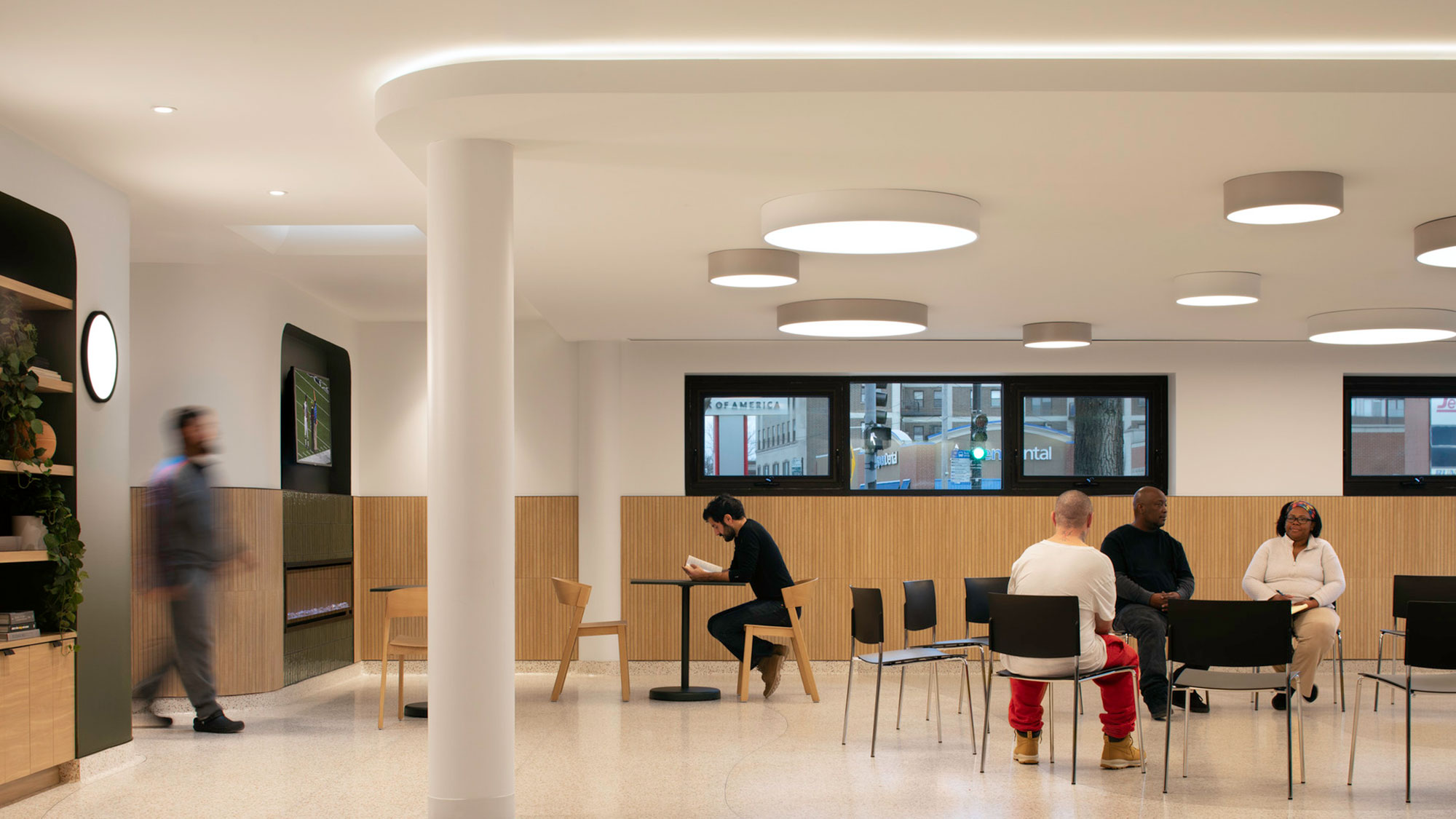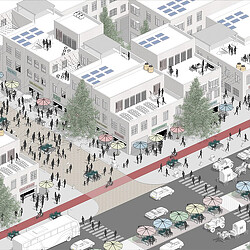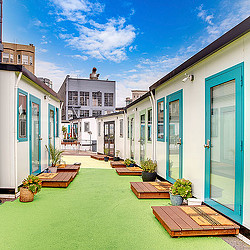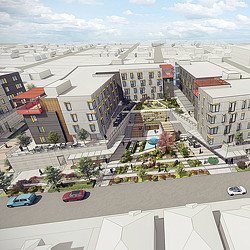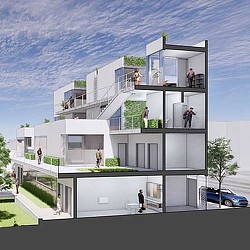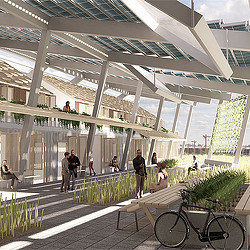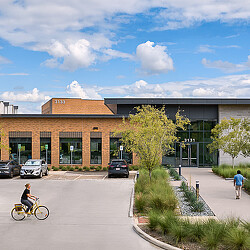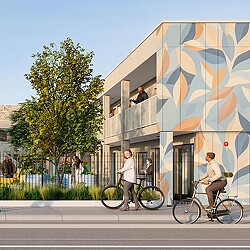How Two Innovative Shelters Reimagine Refuge for the Homeless in Chicago
By prioritizing privacy and dignity, trauma-informed design can provide essential refuge and promote sustained healing.
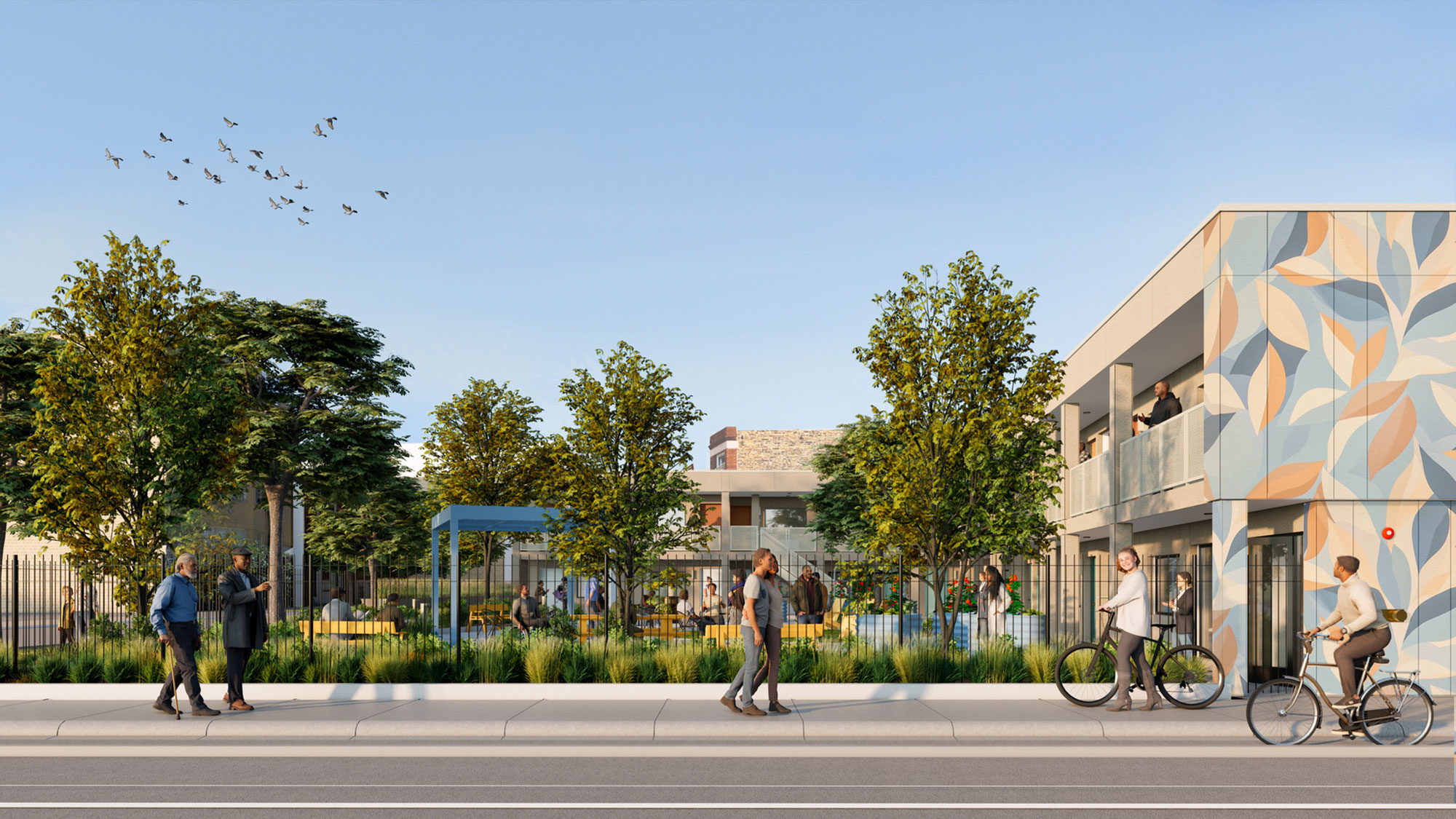
Housing insecurity and homelessness have reached crisis levels in the United States. The country experienced a record-breaking 18% increase in homelessness in 2024, with all indicators suggesting this trend will continue upward as the cost-of-living increases and access to basic services diminish.
As communities grapple with this escalating humanitarian challenge, local governments and service providers urgently seek evidence-based solutions that balance financial feasibility and scalability with effectiveness and dignity.
While conventional shelters, such as congregate living facilities, where individuals experiencing homelessness sleep, eat, shower, and receive care in communal spaces, are critical in providing basic services and temporary housing the homelessness, these facilities often fall short. Unfortunately, these crowded spaces often lead to re-traumatization rather than healing, perpetuating the cycle of trauma among shelter residents. A new solution is needed.
Pioneering New Solutions in Chicago
Chicago’s Hotel 166 Initiative emerged during the pandemic as a transformative solution to prevent COVID-19 transmission among the homeless population. This collaborative effort involved the City of Chicago, Lawndale Christian Health Center, homeless service providers, and community partners, which offered temporary individual housing accompanied by comprehensive medical, behavioral, and social support. The initiative had profound impacts: over half of its participants transitioned into permanent housing, with measurable improvements in mental health, diabetes management, and substance use recovery.
Building on these critical findings, the City of Chicago released a Request for Proposal (RFP) to fund a series of adaptive reuse non-congregate shelters, with two of the shelters designed by Gensler. These shelters provide residents with access to private spaces while implementing trauma-informed design principles focused on dignity, healing, and integrated, supportive services.
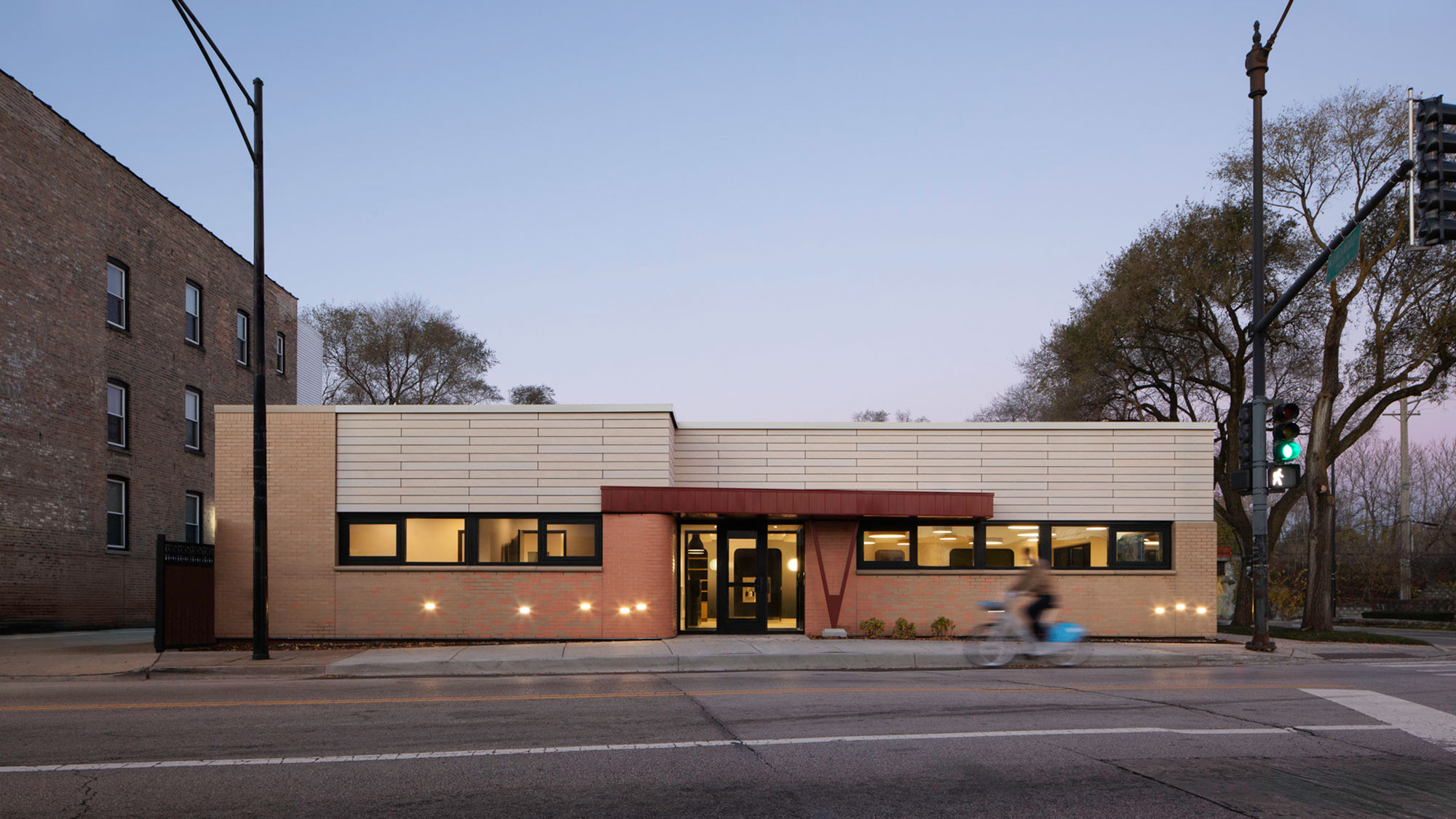
Through careful collaboration with experienced practitioners at North Side Housing and Supportive Services (NSHSS), a men’s shelter in Chicago’s Rogers Park neighborhood, the Gensler team integrated design elements prioritizing dignity, agency, and psychological safety.
Inspired by biophilic principles and the comfort of home, the design incorporates gentle, indirect artificial lighting from sconces and cove fixtures, complemented by ample natural daylight provided by skylights — one in each sleeping room and additional skylights strategically placed at corridor intersections to enhance wayfinding — as well as operable windows in common areas.
Highly durable yet welcoming materials are used throughout the facility, including wood-look tile wainscoting and terrazzo flooring in common spaces. Additionally, common areas feature found objects typically present in a residential setting, such as plants and books, reinforcing a sense of familiarity and warmth.
Since its opening on December 6, 2024, initial post-occupancy findings have indicated improvements in residents’ health and wellness, reduced conflicts between staff and residents, and an increased sense of belonging and personal ownership among residents.
Similarly, The Haven on Lincoln, slated to open in late 2025, is designed to provide non-congregate shelter beds in motel-style units alongside wraparound health and social services, specifically tailored for individuals experiencing homelessness with untreated physical and behavioral health conditions.
The existing parking lot will be transformed into a communal courtyard featuring raised garden beds for planting lessons, flexible furniture arrangements, and shaded pergolas, intentionally harnessing nature’s inherent healing qualities.
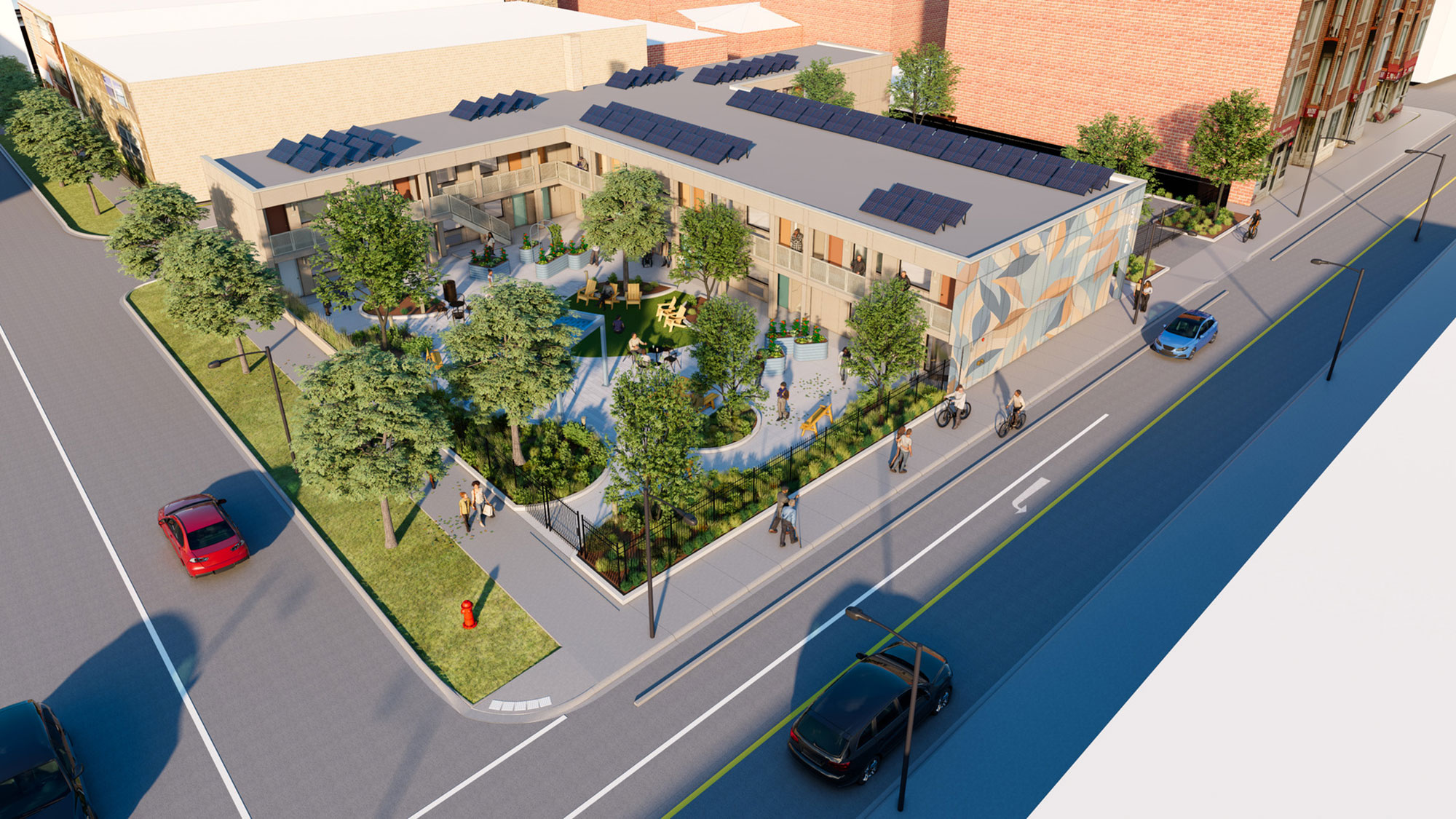
Prioritizing privacy, dignity, and therapeutic environments provides essential refuge and establishes a foundation for sustained healing, improved overall health, and meaningful pathways toward stable, long-term housing.
As homelessness persists as a critical challenge across urban centers nationwide, these innovative shelter models highlight the compelling need for transformation. They remind us that compassionate, research-driven design has the profound capability to deliver tangible, positive outcomes, while reshaping lives and restoring dignity to those most in need.
For media inquiries, email .
